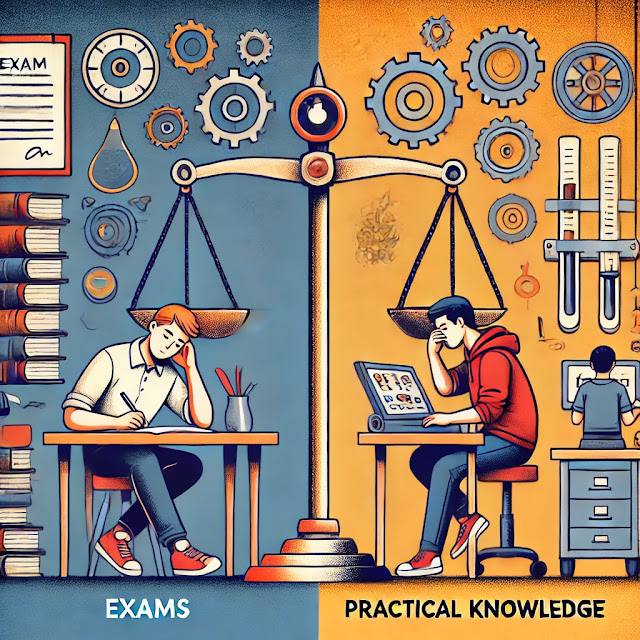📚 Exams: Importance & Limitations
✅ Structured Learning – Exams ensure students cover a broad syllabus systematically.
✅ Evaluation of Knowledge – They test memory, understanding, and problem-solving under pressure.
✅ Academic & Career Credentials – High scores open doors to further education and job opportunities.
⚠ Rote Learning Over Understanding – Many exams encourage memorization rather than deep comprehension.
⚠ Limited Real-World Application – Exam questions are often theoretical and may not align with workplace challenges.
🔧 Practical Knowledge: Relevance & Challenges
✅ Hands-on Experience – Learning by doing improves problem-solving and adaptability.
✅ Industry & Job Readiness – Employers value skills that can be applied immediately.
✅ Creativity & Innovation – Practical knowledge fosters critical thinking and the ability to tackle real-world issues.
⚠ Lack of Standardized Assessment – It’s harder to measure and compare than exam scores.
⚠ Limited Recognition in Formal Education – Many systems prioritize exams over hands-on skills.
🎯 What Matters More?
- For Technical & Professional Fields (Engineering, Medicine, IT) – A balance is crucial; theory builds foundation, but practical skills make a professional competent.
- For Creative & Entrepreneurial Fields (Business, Art, Design) – Practical knowledge is often more valuable than exams.
- For Government & Competitive Exams – Exams are critical since they determine career opportunities.
💡 Ideal Approach: Blend Both!
Exams provide structure and validation, while practical knowledge ensures real-world effectiveness. An education system that integrates both will produce well-rounded individuals.


No comments:
Post a Comment